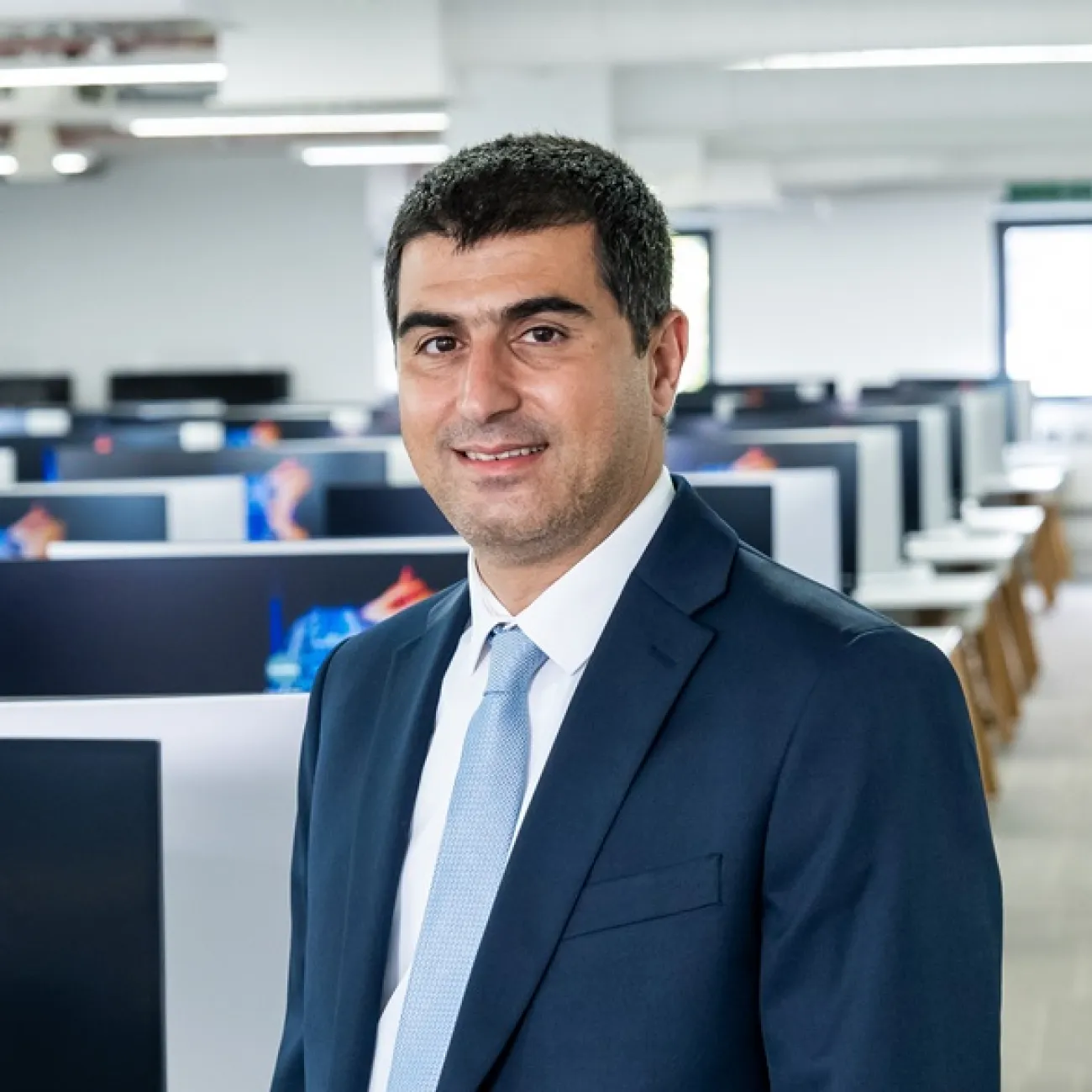About
Visiting Academic Posts
- Visiting Professor (Secure IoT Technologies) at the Kazakh-British Technical University (2016-2017).
- Visiting Scholar (Hardware Security) Technical University of Kaiserslautern on Technical University of Kaiserslautern (2017-Now).
- Visiting Scholar (Hardware Security) at the University of Turin, Italy on Cryptographic systems and algorithms (2023-Now).
- Visiting Scholar (Hardware Security) at the Norwegian University of Science and Technology, Norway (2022-Now).
International Conferences Organisation
- Organising Committee Member (European Liaison) of IEEE International Symposium on Hardware Oriented Security and Trust (HOST), United
- Chair of the IEEE International Verification and Security Workshop (IVSW).
- Program Theme Chair of the 11th IEEE European workshops on Microelectronics
- Technical Program Committee member IEEE International Symposium on Hardware Oriented Security and Trust (HOST).
- Technical Program Committee member IEEE Design, Automation and Test in Europe Conference (DATE)
- Technical Program Committee member IEEE Design, Automation Conference (DAC).
- Technical Program Committee member of Microprocessor/SoC Test and Verification Workshop, United States
- Technical program committee member of the international Microelectronics Olympiad,
- Technical Program Committee Member of the IEEE International Conferences on Computer and Computational Sciences,
- Technical Program Committee Member of IEEE Asia and South Pacific Design Automation
Advisory Roles
- External Examiner of the Faculty of Science and Engineering, University of Manchester (2023-2027).
- External Examiner of the Engineering Faculty at University of the West of England (2019-2022).
- PhD Examiner in UK and international universities (e.g. Waterloo University, Canada, Newcastle University, UK).
- Member of Synopsys Curricula Advisory Board, United States.
- Member of the Hardware Security Working group of the World Wide Web Consortium (W3C).
- Reviewer of numerous journals including IEEE Transections on Computers, IEEE Transactions on VLSI, IEEE Transection on Circuits and Systems TCAS I, IEEE Transections on VLSI, IEEE Transection on Circuits and Systems TCAS II, Microelectronics
Invited Talks
- Invited Speaker Newcastle University, CMOS Aging Causes, Effects and Mitigations techniques, 2016.
- Invited Speaker, Al-Farabi Kazakh National University, Almaty, Kazakhstan Physically Unclonable Technologies for IoT Security Applications, 2017.
- Invited Speaker, University of Kaiserslautern, Germany, On the Personalities of Electronics Systems and their Security Applications, 2018.
- Embedded Tutorial, IEEE International Verification and Security Workshop (IVSW), Spain, Physically Unclonable Functions: Design Principles, Applications and Outstanding Challenges, 2018.
- Invited Speaker, Newcastle University, On the Hardware Security of Resources Constrained Systems, 2018.
- Invited Seminar, Intel Corporation, United States, Hardware-Based security Solutions of the Internet of Things, 2018.
- Invited Seminar, Intel Corporation, United States, Physically Unclonable Functions: Applications and Outstanding Challenges, 2018.
- Invited Seminar, Queen University in Belfast, Hardware-Based security Solutions of the Internet of Things, 2018.
- Invited Speaker, University of Liverpool, Hardware-Based security Solutions of the Internet of Things, 2018.
- Invited Speaker, University of York, On the Hardware Security of Resources Constrained Systems, 2019.
- Invited Speaker, The Institute of Engineering and Technology (IET), Securing Hardware Supply Chain with an Unforgeable Root of Trust, University of Sussex, 2020
- Invited Speaker Hardware Supply Chain Security: Threats and Defences, Synopsys Armenia Educational Department, Armenia, March 2020.
- Invited Speaker, Hardware-based Security Solutions for the Internet of Things, 25th Asia and South Pacific Design Automation Conference, Beijing, China, 2020.
- Invited Speaker Hardware Trojan Detection and Mitigation Techniques: Threats and Defences, Synopsys Armenia Educational Department, Armenia, March 2021.
- Invited Speaker, Physically Unclonable Functions, Design Principles, and Outstanding Research Challenges. AVT-337 Research Workshop on Anti-tamper protective systems for NATO operations, November 2021.
- Invited Speaker, Physically Unclonable Functions Armenia Educational Department, Armenia, March 2022.
- Invited Speaker, Hardware Supply Chain Security Threat Analysis, and emerging countermeasures. Third-Party & Supply Chain Cyber Security, Summit, Amsterdam, The Netherlands, 2022.
- Invited Speaker, Hardware Supply Chain Security Risk Assessment and Defences Techniques. Supply Chain Risk and Resilience Forum - Berlin 2023.
- Invited Speaker, Machine Learning For Hardware Security Armenia Educational Department, Armenia, March 2023
- Invited Speaker, Chip Security: Why should we care? South West Cyber Cluster, United Kingdom, September, 2024
Public Engagement
- Interview with Reuters on the hardware supply chain security, following pagers explosion incidents in the Middle East (2024). URL: https://www.dailytelegraph.com.au/news/national/analyst-on-how-a-detonator-could-theoretically-fit-in-a-pager/video/1452a2e893ee71a006f35460ce8427e0
- Article on the Hidden threats in our electronic supply chain (2024). URL: https://news.cgtn.com/news/2024-09-23/The-hidden-threats-in-our-electronic-supply-chain-1x7ZuS9CnJu/p.html
- A blog on how to design secure electronics for space applications (2024). URL: https://www.port.ac.uk/news-events-and-blogs/how-do-we-ensure-the-security-of-space-applications
- A blog by armComunity on hardware supply chain security (2022)
- URL: https://community.arm.com/developer/research/b/articles/posts/addressing-the-hardware-supply-chain-security-challenge
- A case study on my hardware Security Research , published by the Royal Academy of Engineering(2020). URL: https://raeng.org.uk/programmes-and-prizes/programmes/meet-the-researchers/dr-basel-halak
- Radio interview on TBS eFM, Seoul, South Korea New Authentication Methods (2020) URL: http://www.podbbang.com/ch/10101
- BBC Article on New Authentication Methods: Amazon One: Palm scanner launched for 'secure' payments (2020). URL: https://www.bbc.co.uk/news/technology-54337984
- Global Media coverage of the research findings of energy consumption of asymmetric crypto systems(2021-2023).
- https://www.capacitymedia.com/article/2avw14lvyldamik5j9yww/news/save-energy-while-protecting-data-claims-arqit-quantum
- https://www.globenewswire.com/news-release/2022/11/11/2553979/0/en/Arqit-s-product-QuantumCloud-can-make-58-energy-saving.html
- https://uk.finance.yahoo.com/news/arqit-product-quantumcloud-58-energy-070000430.html
- https://cyprusshippingnews.com/2022/11/29/arqits-product-quantumcloud-can-make-58-energy-saving/
- https://markets.businessinsider.com/news/stocks/arqit-quantum-capable-of-reducing-carbon-footprints-for-crypto-study-finds-1031904894
Editorship
- Associate Editor of IEEE Access
- Editor of IET Circuit, Devices and System Special Issue on Microelectronics Education, United Kingdom.
- Editor of MPDI Micromachines, Special Issue on Hardware Supply Chain.
You can update this in Pure (opens in a new tab). Select ‘Edit profile’. Under the heading and then ‘Curriculum and research description’, select ‘Add profile information’. In the dropdown menu, select - ‘About’.
Write about yourself in the third person. Aim for 100 to 150 words covering the main points about who you are and what you currently do. Clear, simple language is best. You can include specialist or technical terms.
You’ll be able to add details about your research, publications, career and academic history to other sections of your staff profile.
